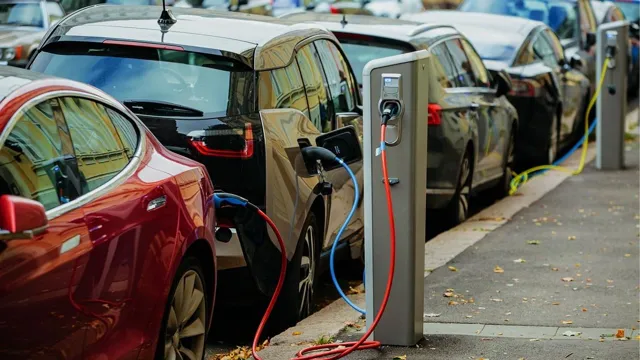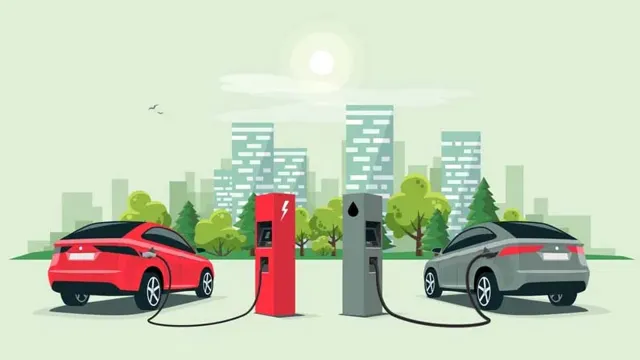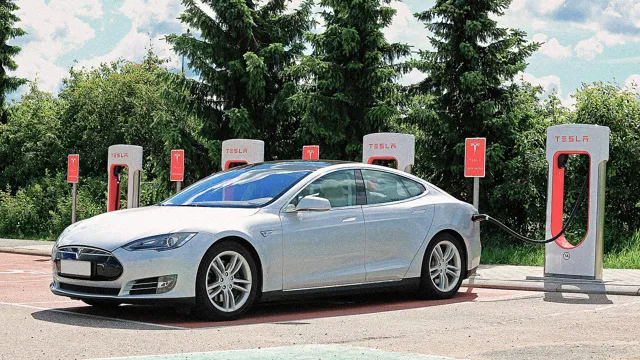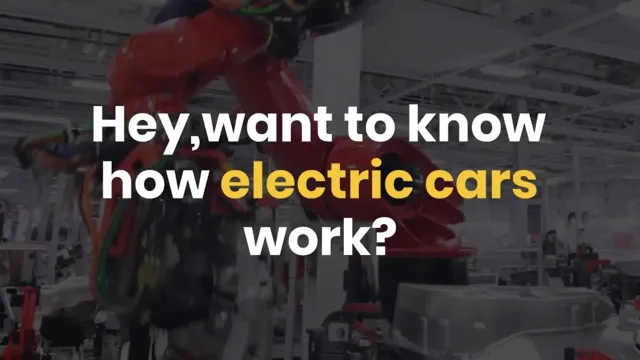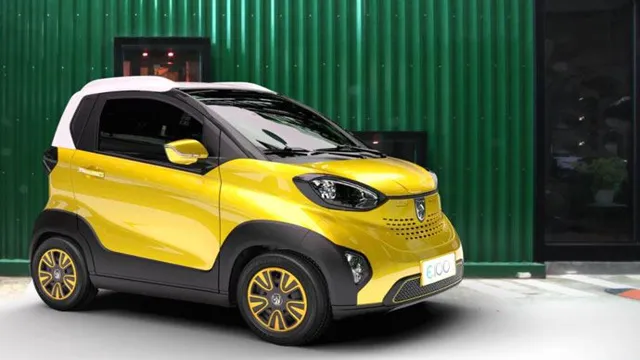Why Electric Cars Are Cheaper to Maintain: A Closer Look at the Benefits
Electric cars are becoming increasingly popular due to their eco-friendliness and efficiency, but another major advantage is their low maintenance costs. Compared to traditional gasoline-powered vehicles, electric cars require significantly less maintenance. This is due to the fact that electric motors have far fewer moving parts than internal combustion engines, reducing the likelihood of mechanical failure.
Plus, electric vehicles don’t require regular oil changes or air filter replacements, which can add up over time. This means that electric car owners can enjoy not only a cleaner environment but also a cleaner wallet. In this blog, we’ll take a closer look at why electric cars are cheaper to maintain and how this can benefit both your budget and the planet.
Less Moving Parts
One of the major reasons why electric cars are cheaper to maintain is because they have less moving parts compared to traditional gasoline-powered cars. Conventional cars require oil changes, transmission fluid refills, and regular maintenance of the exhaust systems, spark plugs, and radiators. All these moving parts take up a lot of space and require regular servicing, which translates to more maintenance costs.
Electric cars, on the other hand, have a simpler design that requires fewer moving parts. For instance, they don’t have a conventional fuel system, an exhaust system, or a complex transmission system. This means that there are fewer parts that can break down or malfunction, reducing the maintenance costs of electric cars.
Additionally, electric cars require fewer fluids and lubricants such as oil and transmission fluids, which further reduces the maintenance costs. Therefore, if you’re looking to save on maintenance costs, switching to an electric car might be the way to go.
Electric motors have far fewer components than internal combustion engines, meaning less wear and tear.
Electric motors have a significant advantage over internal combustion engines – they have fewer components and moving parts. This means they have less wear and tear, making them more durable and less prone to breaking down. In comparison, internal combustion engines have many complex parts, including pistons, valves, camshafts, and crankshafts, which require oil lubrication to function smoothly.
Furthermore, these components experience tremendous forces, leading to wear and tear, which can cause the engine to malfunction over time. On the other hand, electric motors have a simple design with only two main components, a rotor, and a stator. The rotor rotates inside the stator, creating an electromagnetic field that propels the motor.
Since there are no pistons, gears, or crankshafts, there is no extensive maintenance required. Consequently, electric motors are more reliable and require less attention, making them a cost-effective option in the long run.
In short, the simplicity of electric motors translates to fewer parts, which translates to fewer wear and tear issues.This feature is especially crucial for vehicles with high mileage since electric motors are more reliable and require minimal maintenance. By choosing electric vehicles, individuals can save time and money, reduce their carbon footprint, and contribute to a cleaner environment.
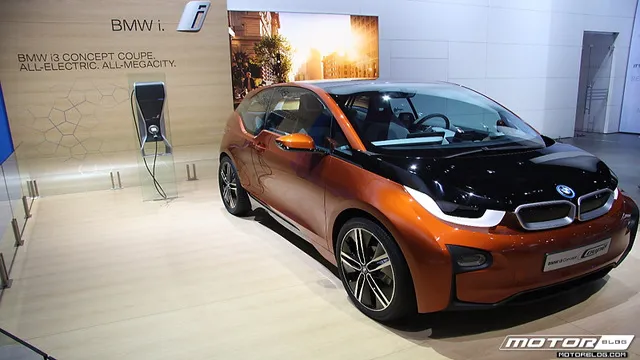
Lower Maintenance Needs
One of the reasons why it is cheaper to maintain electric cars is due to their lower maintenance needs. Compared to traditional gasoline-powered vehicles, electric cars have simpler and fewer moving parts, which means there is less wear and tear on the vehicle. Furthermore, electric cars do not require oil changes or tune-ups like gasoline-powered cars, which can significantly reduce maintenance costs over time.
Additionally, electric cars have regenerative braking, meaning that the vehicle’s kinetic energy is captured and reused, reducing wear and tear on the braking system and prolonging the life of brake pads. In summary, electric cars’ efficient design and use of regenerative braking greatly reduce the cost of maintenance, making them a more cost-effective option in the long run.
No oil changes, fewer brake replacements, and simpler cooling systems mean lower maintenance costs overall.
When it comes to maintenance, electric cars have a clear advantage over their gasoline-powered counterparts. No oil changes mean less time and money spent on routine maintenance. Likewise, electric cars have simpler cooling systems, which means fewer costly repairs.
And because electric cars use regenerative braking, their brake pads last much longer, resulting in fewer brake replacements. Simply put, electric cars have lower maintenance costs overall. So not only are electric cars good for the environment, but they can also save you money in the long run.
Who wouldn’t want that?
Incentives and Rebates
Electric cars offer significant cost savings compared to traditional gas-powered vehicles, and one of the main reasons for this is the various incentives and rebates offered by governments and manufacturers. For example, many governments offer tax credits for purchasing electric vehicles, and some also offer rebates for installing home charging stations or converting to renewable energy sources. Additionally, many manufacturers offer warranties and maintenance programs that cover the cost of routine maintenance and repairs, reducing the overall cost of ownership.
Because electric cars have fewer moving parts than traditional vehicles, they require less maintenance and are less susceptible to breakdowns, which also contributes to the overall cost savings. All of these factors work together to make electric cars a more cost-effective and environmentally friendly choice for consumers.
Some states offer tax incentives or rebates for electric vehicle purchases or maintenance, further reducing costs.
One of the best ways to save money on electric vehicles is to take advantage of incentives and rebates offered by some states. These programs can significantly reduce the cost of purchasing or maintaining an electric vehicle, making it a more affordable and attractive option for many people. The exact incentives and rebates available vary by state, but they may include tax credits, grants, discounts on charging equipment, and more.
Some states also offer programs specifically aimed at low-income households to ensure that everyone can enjoy the benefits of electric vehicles. Not only do these incentives save you money upfront, but they also help to reduce the cost of ownership in the long term, making electric vehicles a smart investment for any budget-savvy driver. If you’re considering purchasing or leasing an electric vehicle, be sure to research the incentives and rebates available in your state, as they could help you save thousands of dollars over the life of your vehicle.
Longer Lasting Brakes
One of the reasons why it’s cheaper to maintain electric cars is because of their longer-lasting brakes. Unlike traditional cars that rely on friction-based brake systems that wear out quickly, electric cars use regenerative braking technology. This allows the electric motor to slow down the car and convert that energy into electricity to recharge the battery.
As a result, the brakes don’t have to work as hard, leading to less wear and tear. The reduced strain on the brake pads and rotors means less frequent replacement, resulting in savings over time for electric car owners. Plus, regenerative braking also means less brake dust and pollution, making it a win-win for both the environment and your wallet.
All in all, electric cars provide a smarter and more cost-effective way to get around and help contribute to a more sustainable future.
Electric cars use regenerative braking, which means less wear on the brakes and longer brake life.
One of the great advantages of driving an electric car is that regenerative braking is used, which can result in longer-lasting brakes. Every time you hit the brakes in a conventional car, the kinetic energy created by the vehicle is lost as heat and dissipated into the environment. Regenerative braking in electric cars is different, however.
The electric motor that powers the car can turn into a generator when you hit the brake, capturing some of that energy and storing it in the car’s battery. This means that less mechanical braking is required, so the brake pads and discs last longer. Not only does this save you money in the long run, but it also means less waste and fewer resources are required to manufacture new brake components.
So not only are electric cars better for the environment, but your brakes could also last for a longer period of time, helping you save even more money.
Reliability
Electric cars are cheaper to maintain because of their reliability. Unlike traditional gas-powered cars, electric cars have fewer moving parts, which means there is less chance of something breaking down. This translates into lower maintenance costs for the owner.
Additionally, electric cars use regenerative braking, which means they don’t rely on brake pads as much. This reduces the need for frequent brake pad replacements. Furthermore, the electric motors used in electric cars are more efficient and have a longer lifespan than gas-powered engines.
This means the owner spends less time and money on maintenance and repairs, as well as less money on fuel. All of these factors play a role in making electric cars cheaper to maintain than their gas-powered counterparts. So, if you’re looking to save money on your car’s maintenance, consider switching to an electric car.
Electric cars have fewer issues with overheating, ignition problems, and other common engine-related failures.
When it comes to reliability, electric cars are ahead of the game. Thanks to their simpler mechanics, they have fewer issues with overheating, ignition problems, and other engine-related failures that plague traditional combustion cars. Unlike gasoline engines, electric motors have fewer parts that can wear down or break, meaning less maintenance and fewer problems in the long run.
Not having to worry about oil changes or spark plugs is a huge perk for electric car owners, as well as the fact that the battery itself usually has a lifespan of over 100,000 miles. While electric cars do have their own unique set of maintenance needs, they are generally easier and simpler to take care of than gas-powered vehicles. So if you’re looking for a car that you can rely on to get you from Point A to Point B without all the fuss, an electric car might just be the perfect choice for you.
Conclusion
It’s simple, really. When it comes to maintaining electric cars, there are less parts, less complexity, and less opportunities for things to go wrong. So, instead of spending a fortune on oil changes, spark plugs, and engine repairs, electric car owners can spend their hard-earned money on more important things, like upgrading to the latest and greatest technology or taking a scenic road trip without worrying about stopping for gas.
In other words, owning an electric car isn’t just good for the environment, it’s also good for your wallet. Give it a try and see for yourself!”
Overall, the simplicity and efficiency of electric cars make them more affordable to maintain than gas-powered vehicles.
When it comes to reliability, electric cars stand out in comparison to gas-powered vehicles. The simplicity of their design and mechanics leads to fewer parts overall, which means fewer things can go wrong. Unlike traditional engines, electric vehicles have fewer components, no belts or hoses, and they do not require oil changes.
This straightforward design translates into fewer repair costs, lower maintenance expenses and less hassle for the car owner. Moreover, Electric motors have fewer moving parts than internal combustion engines do, which makes them less prone to wear and tear. This means that electric cars tend to have a longer lifespan compared to their gas-powered counterparts.
Additionally, electric cars come with long warranties because the manufacturers know that electric drivetrain components are unlikely to fail, making their owners feel more secure about their investment. In summary, owning an electric car means having access to a vehicle that is reliable, less costly to maintain, and has a longer lifespan than a gas-powered vehicle.
FAQs
What is the average cost of maintaining an electric car compared to a gasoline car?
The average cost of maintaining an electric car is significantly cheaper than maintaining a gasoline car, due to the simpler mechanics and fewer components in electric cars.
Why are the maintenance costs lower for electric cars?
Maintenance costs are lower for electric cars because they have fewer moving parts, which means fewer parts that can wear out or malfunction. Additionally, electric motors are more efficient and generate less heat, so there is less wear and tear on the engine.
Do electric cars require less frequent maintenance than gasoline cars?
Yes, electric cars generally require less frequent maintenance than gasoline cars, again due to their simpler design and fewer moving parts. For example, electric cars do not need oil changes like gasoline cars do, which can save owners a significant amount of money over time.
Can you do basic maintenance on an electric car yourself?
Yes, basic maintenance tasks such as checking the battery levels and tire pressure can be done by owners themselves without needing to take the car to a dealer or mechanic. This can save money on routine maintenance costs. However, it’s important to note that electric cars do have high-voltage components that should only be serviced by qualified technicians.

